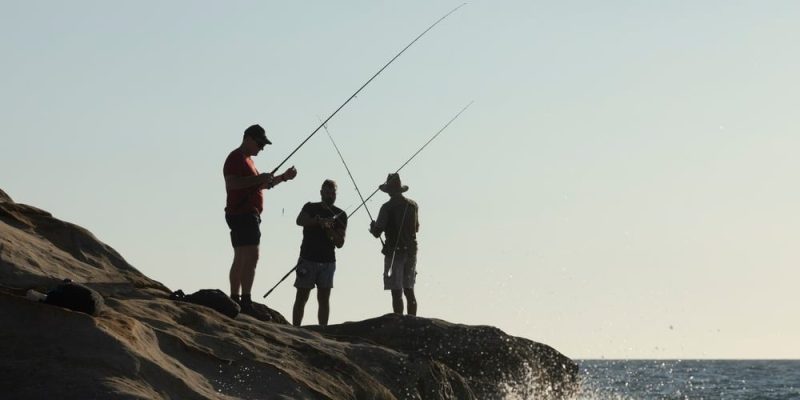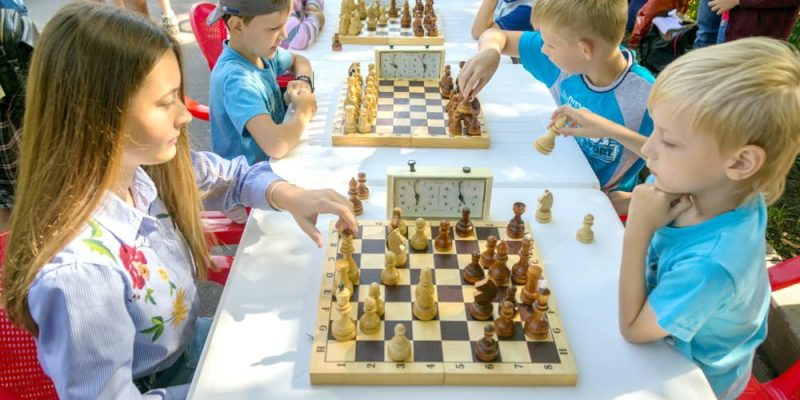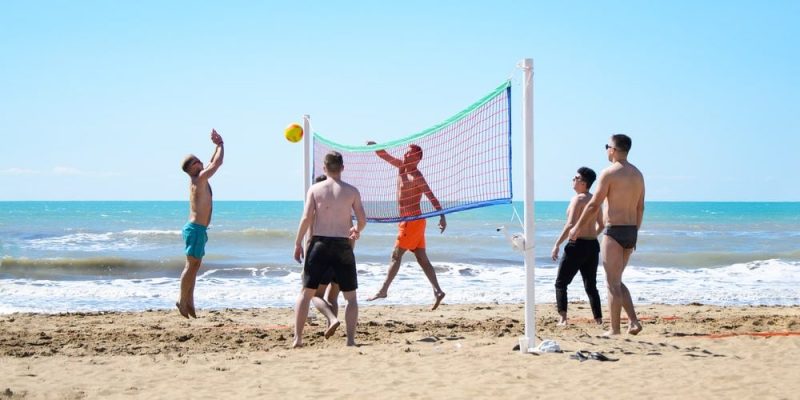We explain what hobbies are, their benefits, what types exist and various examples. Also, how they differ from professions.

What are the hobbies?
A hobby (plural: hobbies) It is an activity that is done for the pleasure of doing it that is, without productive or educational aspirations of any kind, but as a form of recreation. It is a term of Anglo-Saxon origin, which like all foreign loans must be written in Spanish between italics, and which is equivalent to the Hispanic words “aficionado” or “pasatiempo”.
Hobbies play an important role in life, as they provide people with an escape from everyday life, work and responsibilities, which is key to preserving vital energy and motivation. Furthermore, the hobbies They are conducive to exploring talents and skills that are little cultivated on a daily basis, or simply to know and develop personal tastes.
Hobbies can be of different types:
- Physical or sports hobbies. They consist of bodily activities, individual or team, that are carried out for the pleasure of competing or exploring new environments. For example: playing soccer, riding a bicycle or mountaineering.
- intellectual hobbies. They consist of sedentary activities that require the use of mental faculties. For example: playing board games, reading literature or watching movies.
- precision hobbies. They consist of activities that require fine motor skills, precise use of the fingers and a high degree of concentration. For example: modeling, painting or gardening.
- Social or exchange hobbies. They consist of activities that involve dealing with other people and negotiation. For example: collecting, philately or language learning.
In any case, hobbies are carried out entirely for pleasure, even when they consist of activities that other people perform professionally. For example, a person can play chess like a hobbyoccasionally and without aspirations of becoming a chess player, while career chess players dedicate themselves to chess professionally.
See also: Recreational activities
Examples of hobbies

The following are examples of hobbies of different types:
- Gardening. It consists of planting and growing plants, in soil or in pots, without profit or food production.
- Aquarophilia. It consists of growing and maintaining domestic fish in fish tanks and aquariums of different types.
- Philately. It consists of collecting stamps, envelopes and postal stamps.
- Numismatics. It consists of collecting coins and bills from different countries.
- Modeling. It consists of assembling and painting miniature models of airplanes, trains, ships or others.
- board games. It consists of meeting with other people to have board game sessions, in which strategy prevails and not chance or bets of any kind.
- DIY. It consists of repairing, building and improving furniture, objects and installations, without professional intentions, but for the pleasure of building things.
- Militaria. It consists of gathering, organizing and collecting objects belonging to the military field, especially from the past, such as uniforms, helmets or bullets.
- Audiophilia. It consists of a taste for music and sound recordings, which usually leads to accumulating records and developing specialized criteria in musical and recording history.
- Origami. It consists of the hobby of folding paper to achieve artistic shapes that resemble animals, flowers or objects, using certain special papers for this purpose.
- Cinephilia. It consists of a taste for cinema and the audiovisual world, especially great cinema and the world of actors, which usually leads to accumulating films, paraphernalia and specializing in the history of the seventh art.
- Video games. It consists of playing video games and specializing in the industry gamerstaying up to date on future platforms or projects.
- Reading and literary culture. It consists of reading literature, comics or some other artistic or leisure literary format, that is, without practical or pedagogical applications.
- Amateur Radio. It consists of communicating with other people in distant locations through a shortwave radio device, as well as listening to military, government or any other type of broadcasts.
- Sports. It consists of doing competitive or individual body activities, indoors or outdoors, which can range from soccer to athletics or yoga.
- Cosplay. It consists of dressing up and playing certain characters from video games, animated series or cartoons at fan conventions.
- Dance. It consists of getting together with other fans to dance certain specific rhythms (usually traditional or folkloric rhythms), thus reinforcing the idea of group identity or simply having fun to the beat of the music.
- Kitchen. It consists of learning to cook more or less elaborate dishes, for the pure pleasure of achieving them and tasting them later.
- Photograph. It consists of cultivating a taste for capturing photos of different types, usually with professional cameras, with no other intention than to observe and capture the beauty of the surrounding world.
- artistic expression. It consists of making paintings with oil paints, tempera paints, charcoal or other implements typical of drawing and the plastic arts, or even with clays and other sculptural materials. All without any intention of artistic triumph, simply for the pleasure of expressing one's own individuality.
- Hiking. It consists of walking through green or rural areas, such as mountains, forests, places of all kinds, with the sole purpose of observing the landscape and reaching new places.
- Bird watching. It consists of observing the birds of the local fauna with binoculars and/or a camera, often with the guide of a zoo atlas.
- language learning. It consists of enrolling in courses to learn to speak another language, without the expectation of using it for professional purposes.
- A diary or a blog. It consists of taking notes of daily life in a notebook or in a web log (on-line), to comment on interesting issues or propose points of view.
- Play a musical instrument. It consists of playing or learning to play an instrument with no other aspirations than to reproduce some music by one's own hand.
- Crafts. It consists of producing crafts, ornaments or even pieces of clothing (fabrics, for example) without any commercial purpose.
Benefits of hobbies

The hobbies They are an essential activity for a balanced and healthy life. On the one hand, encourage exploration of the inner world, social exchange and, in some cases, physical strengthening. But they also open a living space away from responsibilities, work, study and everyday life, which provides a necessary mental and emotional rest.
Some hobbies They can give meaning to free time, they can make loneliness more bearable or they can bring opportunities to meet new people. In addition, they usually give the individual the opportunity to express their inner self or their subjectivity.
Difference between hobbies and professions
Hobbies or hobbies They may consist of the same activity as a profession, but it is not carried out for the same reasons. The fans (also called amateur) carry out the activity for the mere pleasure and without ambitions of any kind, while professionals do them like a job because it is their daily work.
For example, a person can get together on the weekends with his friends to play a soccer game, like a hobby that they share and enjoy together. While a professional footballer plays football in an entirely different way, because it is his job. In fact, it is likely that the footballer has some hobby that develops alongside your professional life.
Continue with: Quality of life
References
- “Hobby” on Wikipedia.
- “Hobby” in the Pan-Hispanic Dictionary of Doubts of the Royal Spanish Academy.
- “Why Hobbies are Important?” at Kettering Global.





